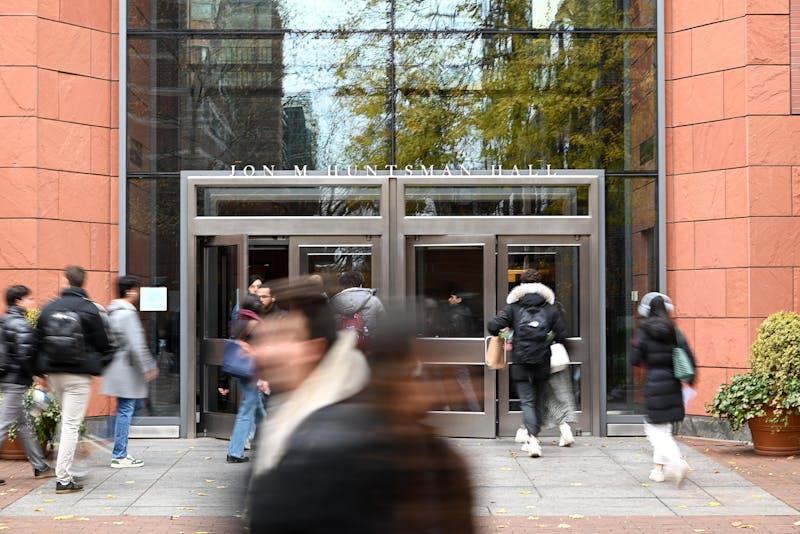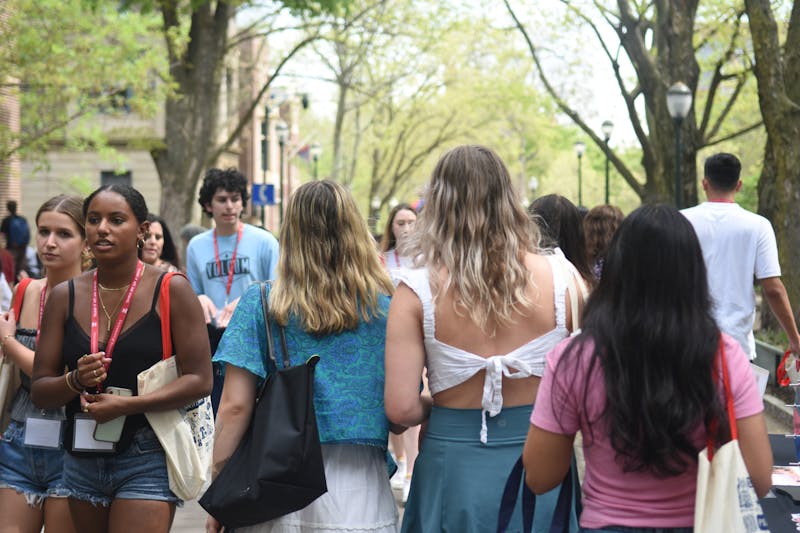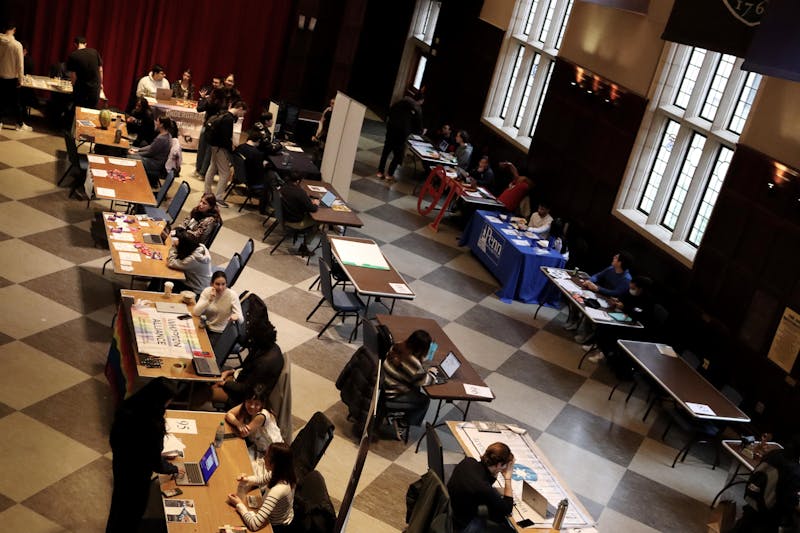
“I love academia, but is it good for my mental health?”
“I don’t know who I am, but I have no time to figure that out.”
“Americans live to work.”
“Penn is my toxic boyfriend.”
These are some of the things I’ve said to my friends these last few days, several times.
We are at that point of the semester. Things get really busy — midterm season, summer job hunt, advance registration — and we start to feel the burnout. Though I’ve started to really complain about the burnout this particular week, I have noticed that at Penn — and in American academia more broadly — the pressure is always there.
The European perspective views American work culture as harsh and alienating, describing it as a treadmill where there’s always the need to chase for promotions, social status, financial gains, etc. A Serbian journalist uses the term “career anxiety” to describe how coming to an American university for her master’s degree felt.
As a Colombian, I came to Penn craving a rigorous academic environment. I had worked strenuously back home to get into one of the top research universities in the world. As a classics major, the opportunities offered were like catnip to me. Possibilities of summer archeological digs, working at the Penn Museum, studying ancient languages, and professors with top-tier experience were all things that I sadly would have never dreamed of if I had stayed in my country. It’s a fact: American academia is powerful. Their prestigious universities develop COVID-19 vaccines, dominate Nobel Prize scientific research, and rank at the top for studying the humanities.
However, American academia feels like a double-edged sword. Every day I’m incredibly thankful for the opportunity to be a student at a place like Penn, where groundbreaking research and innovation are taking place all the time. Yet, I can’t help but agree with the statement that it is an environment that can get alienating and toxic very quickly.
I often find myself listing the things I’ve done, and the things I haven’t but should have. I panic because I feel like I’m not enough to compete with other candidates on job or internship hunts. My mind can’t stop itself from thinking that there’s someone better than me who has probably done more things than me. And I find it impossible to leave it at that. I have fear of rejection and career anxiety. I wonder why I haven’t yet been editor-in-chief, why I don’t speak four languages instead of two, or why I haven’t gotten an internship yet. Then I remember I am only 18. I tell myself that for now, there’s no imperative to be all of those things. But that’s a lie. My mind starts racing, again telling me to do, do, do, be, be, be!
Nick Rule, a professor of psychology at the University of Toronto and Dartmouth alumnus, states that academia “feed[s] the imposter syndrome beast” — it pushes people toward the edge of a perfectionism precipice, leading students to hold unreachable standards for themselves. We start overworking, ignoring our needs to rest, and obeying this pressure. M.E., an aerospace engineering first-year student at the University of Texas, told me: “I don’t do things because I want to, but because I have to. I find myself blaming my failures on my need to rest and be happy.”
There is definitely a need to be. Academia makes me feel alienated, like I’m just a resume that needs to be filled. I find that we don’t do most of the things we do in academia because we simply want to, but because there is an interest in gaining social status through networking. It’s not a coincidence that Penn students say, “Your network, It’s your net worth” all the time.
Wharton sophomore and Italian international student Francesco Salamone stressed how American culture and academia are very transactional: “You can’t distinguish between doing something for fun or doing something to get something out of it.” He also observed the impact a networking mentality has on campus social life. “In Italian culture, you meet someone for the sake of meeting them; you get to know them outside the context where you met them.” At Penn, sometimes it feels like there is a need to be constantly meeting people to get something out of them. “You notice that difference walking around on campus,” he explained.
In American academia, it feels like everything you do has a lucrative interest. Most of the time, I find that it is not money but rather an endless chase for intellectual and social capital. “American universities tend to encourage pre-professionalism in undergraduates, which leads to a culture of non-stop work,” professor of English Caroline Batten said. “Students are encouraged to engage with work not in a way that actually provides intellectual joy but in a way that becomes an unrelenting pressure that doesn’t help students become scholars in a way a university education is supposed to.”
If you ask me, I don’t regret coming here for a second. I love academia and all the opportunities it provides. But at the same time, I can’t help but feel suffocated under the pressure to be and do. Sometimes I wish I could get off this treadmill and just exist.

MARIANA MARTINEZ is a College first year studying English and classics from Bogotá, Colombia. Her email is marmari@sas.upenn.edu.
The Daily Pennsylvanian is an independent, student-run newspaper. Please consider making a donation to support the coverage that shapes the University. Your generosity ensures a future of strong journalism at Penn.
Donate












